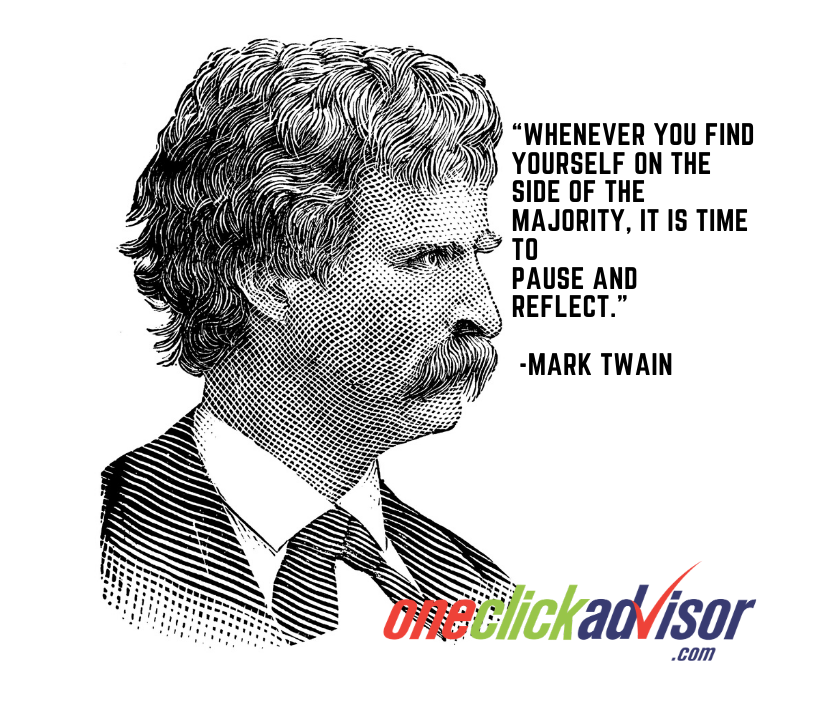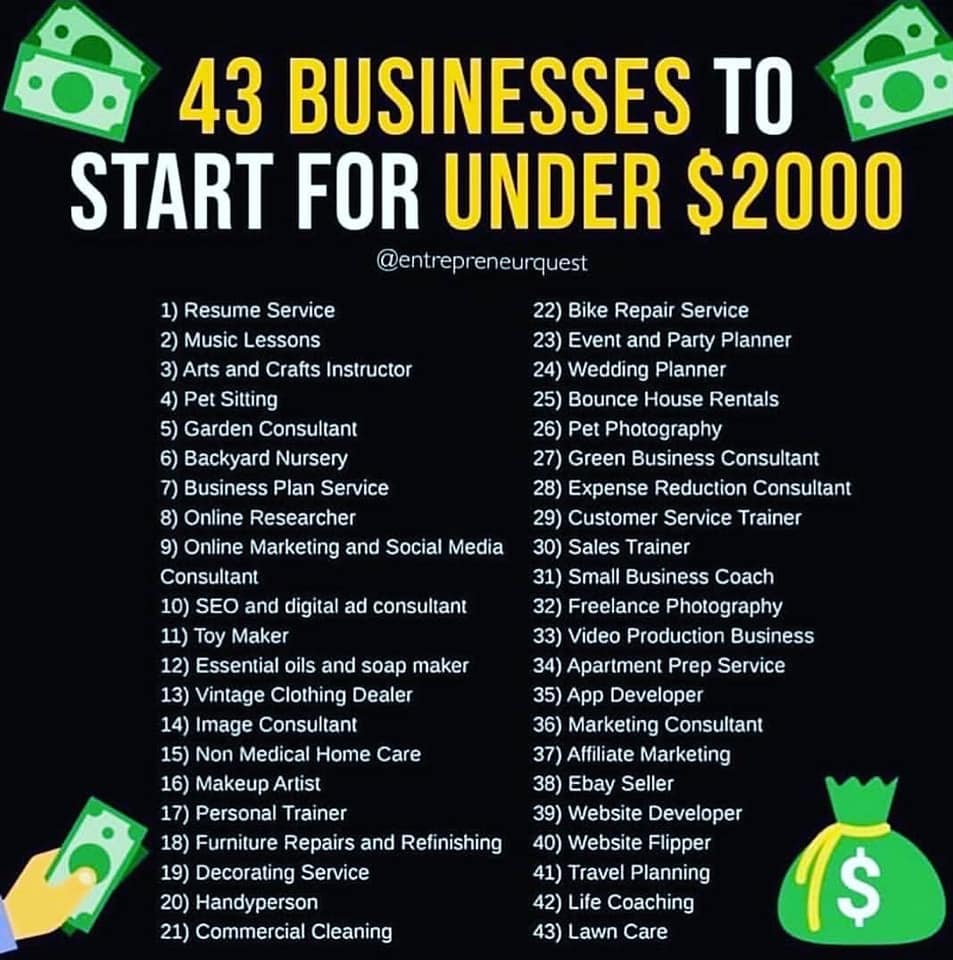
“Improvise, adapt and overcome”is a line from the 1986 film Heartbreak Ridge, starring Clint Eastwood. In a bad economy, all a business needs to do is to improvise, adapt, and overcome. In other words, get creative and find ways around, under, over, or through barriers. Find the keys to success in a bad economy where few others can. No problem, right?
Of course, that is easier said than done. But if you are willing to learn to spot clues and take risks, you can do well. That too is easier said than done. But it is entirely possible and within your ability.
How can you spot the clues you need to change the course of your business?
1. USE LEADING ECONOMIC INDICATORS
Leading economic indicators indicate changes that are about to happen in the economy. They are used by the world’s largest banks and investment firms. Change in any of these will provide clues of the economy’s general direction, and where your opportunities or hazards may be.
- Inventory Changes
- Building Permits
- Stock prices
- Unemployment Claims
There is a vast amount of real-time data available about companies on major financial news sites. For example, inventory changes are affected by manufacturing activity this month. Manufacturing activity this month, which can be seen here, is an accurate predictor of retail activity next month. If there is a manufacturer in your space, track them to see if they are increasing or decreasing output, because that will affect inventory and prices of retailers. It also affects retail profits, expansion, and employment, as well as businesses that serve retailers.
How could manufacturing and inventory changes affect your business?
Building permits are an accurate predictor of construction activity and associated employment and subcontracting. It also predicts subcontracting employment and real estate values. Track building permits here.
How could construction activity affect your business?
Unemployment claims, seen here, provide clues about the direction of consumer spending. The more people on unemployment, the more we can expect consumer spending to be reduced to essentials. When there are fewer people making unemployment claims, it is a good for discretionary spending, such as restaurants, travel, and leisure.
How could the unemployment of others affect your business?
When it comes to stock prices, don’t just look at the Dow Jones Industrial Average or any other index. Use a reliable financial news service such as CNBC or Bloomberg (subscription-based) to track specific companies that are either in your space or have a direct connection to your space. If shares of these companies are traded publicly, as in on a stock exchange, their books are available to the public. Track the share price movement. Read the financials. Is revenue increasing consistently? Is it decreasing consistently? Do they have a high level of inventory? If so, that is a sign that they are having difficulty making sales, which is reason for banks to deny loans. The financials reveal many clues. Get to know certain companies cold!
What could stock prices tell you about the direction of your business?
Also, watch transportation companies such as truckers, freight and cargo companies, as they are usually the first to experience changes in the economy. Additionally, watch the airlines, and all industries that serve them. Track transportation activity here.
What clues could freight and cargo movement provide for your business?
Headlines. Do you let them scare you?
Coronavirus has resulted in our first planned recession. You may have lost a job or are at risk of losing one. You may own a business that was closed due to social distancing, or suffered severe indirect effects of social distancing.
Others may not have suffered great effects, if any at all. But they are cutting back on spending and hiring “out of an abundance of caution”, even with no identifiable hazard. If that’s you, then yes. Headlines scare you.

Gloomy headlines and bad news is everywhere, but you don’t have to succumb to the mood. In fact, mass pessimism offers success opportunities. Keys to success in a bad economy do not include making unnecessary panic moves along with others.
2. UNDERSTAND HOW PEOPLE REACT TO MEDIA
While less scientific and precise, human emotion is predictable and drives economic activity. Watch when people are greedy, and watch when they are fearful. When they are greedy, as in buying stocks and real estate at inflated prices, trouble is ahead. When they are scared, look for opportunity. Warren Buffet famously advised, when they are fearful, be greedy!
Mass fear means mass problems. And mass problems are an opportunity for great rewards for businesses that solve them.
Sign onto social media and join groups and pages that are in your space, or the space of your customers. It doesn’t take long to discern how people react to the days’ news. Are a lot of people panicking over news or economic developments? Are they bragging? Do they appear confident in their own economic or business survival, or not? Or, does a particular news story posted on social media get very little attention?
What could social media show you about the psychology of your customers?
Twitter has a feature here that yields many clues. Type a hashtag followed by some relevant words. You should see some hashtags autocomplete. These are trending hashtags and therefore a great clue about trending social media posts. That is a great clue about people’s current thinking.
Use Google in a similar way. Put yourself in the shoes of your customers and ask questions they might ask. The search window will tell you if you are right. Start typing a question or phrase and see how Google autocompletes it.
What insights could you gain from hashtags and autocomplete?
Now, you have a few clues you didn’t have before. Let’s re-position your business.
3. MICRO EXPERIMENTATION
Micro-experimentation is, like the name suggests, trying new things on a small, inexpensive scale. What could a small business do? The list of options is long, but do something that is within your ability to produce and execute. Do something that as a business owner, you would personally enjoy. Keys to success in a bad economy include keeping the costs of failure low, while getting out sized returns from new ventures. Here are a few more inexpensive ideas.

4. ENTER ESSENTIAL LINES OF BUSINESS.
You should certainly be wary of following an old playbook. It may or may not apply anymore. And it is tempting to produce or sell something that is essential. For example, on the surface, food seems like a no-brainer. If you have some ability already in place to convert to selling food, then give it serious thought. If you cannot execute though, don’t do it. Plan it out first. OneClickAdvisor has an interactive workbook to check your ability to execute on any new idea here.
In the end, customers decide what is essential in a bad economy with their scarce dollars. For example, despite coronavirus-related social distancing and lock-down orders, cosmetics giant L’Oreal reported little impact on sales.
Other businesses that historically perform well in recessions can be found here.
What essential business can you enter?
5. LEAN ON CLASSIC BUSINESS PLANNING METHODS
At first, the plan is…to make a plan. The free Business Builder is a consulting session, solving your business plan questions in minutes. Organize the challenges and opportunities of your new direction into the following areas:
Marketing, because it brings in the customers. Start or continue that plan here.
Operations, because it keeps your customers. Start or continue that plan here.
Finance, because it is the scoreboard. Change the “score” and explore financing here.
By the way, it is harder, but not impossible to get financing in a bad economy because banks become conservative. Be persistent and learn from this small business owner. Also, headaches can certainly result from costs (such as rent) piling up with limited revenue. There are plenty of ways to get or conserve cash during bad times. For more, read here.
Successful re-positioning, pivoting, and turnarounds require great entrepreneurial skill. They are keys to success in a bad economy.

